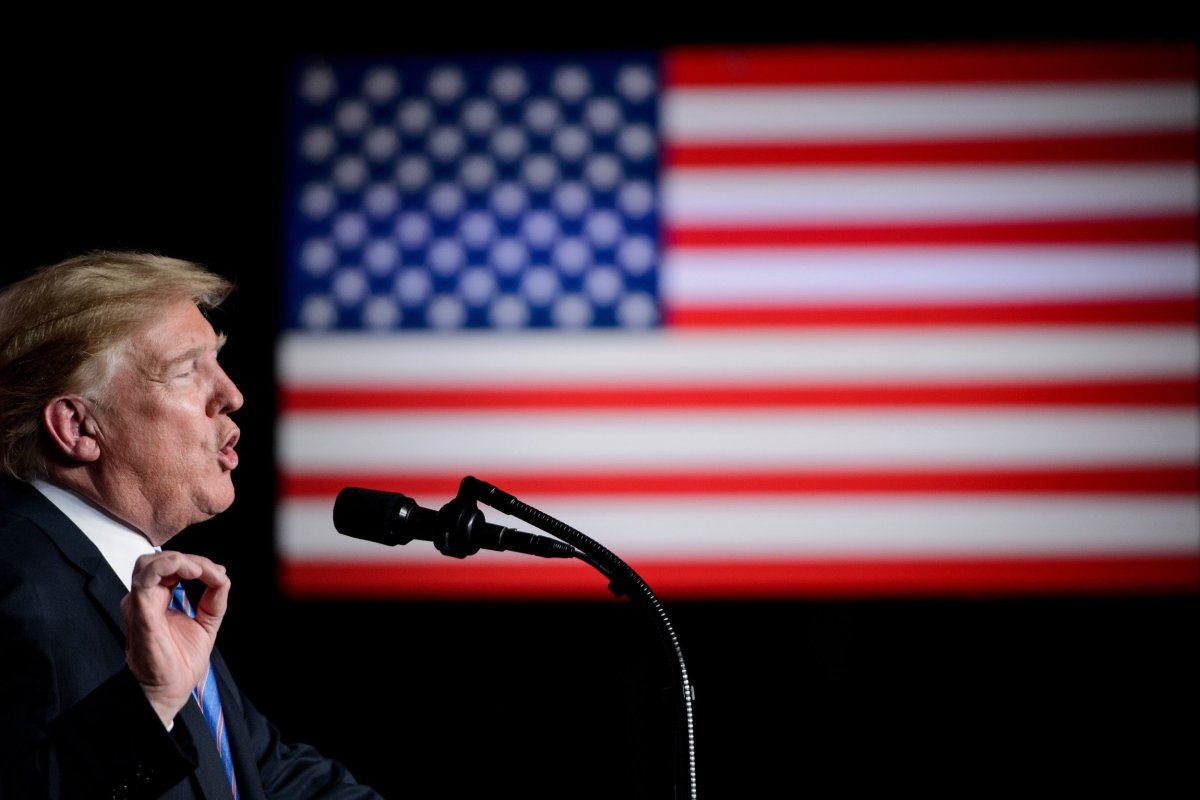President Donald Trump lashed out again at the Organization of the Petroleum Exporting Countries, or OPEC, in his long-running campaign against the oil price cartel. He is concerned about the recent spike in gas prices for Americans and what that means for his presidency.
Founded in 1960, OPEC is a group of governments whose countries are significant oil producers. Together they regulate the supply of oil that reaches the market from them to manipulate its price.
They say this is to create greater stability in the market and the domestic economies of member states and to ensure a fair return for investors in the oil industry. The 15 member states are Iran, Iraq, Saudi Arabia, Venezuela, the UAE, Qatar, Nigeria, Libya, Kuwait, Gabon, Equatorial Guinea, Ecuador, Congo, Angola and Algeria.
"The OPEC Monopoly must remember that gas prices are up & they are doing little to help," Trump tweeted Wednesday evening. "If anything, they are driving prices higher as the United States defends many of their members for very little $'s. This must be a two way street. REDUCE PRICING NOW!"

OPEC did not respond to a request for comment.
The cartel, in partnership with Russia, has restricted oil supply for over a year to support the price per barrel after a period of sharp decline from recent highs that caused economic turmoil for member states. However, at its June meeting, OPEC agreed to slightly increase oil production.
Trump, who is mindful of what impact rising gas prices at station pumps will have on American voters heading into the crunch November midterms, responded on Twitter: "Hope OPEC will increase output substantially. Need to keep prices down!"
The price of West Texas Intermediate crude oil is currently around $74 a barrel. Its recent peak was just above $91 in early July 2014 before the price crashed to a nadir of around $36 in January 2016, subsequently recovering to its current level.
The OPEC Basket price per barrel of crude oil is about $74. It peaked recently at near to $113 in August 2013 before collapsing below $25 in January 2016, then steadily recovering to today's price.
Brent crude declined from its $115 per barrel peak in June 2014 to below $30 in January 2016, before recovering to its current price of around $78.
Though oil prices are still well below their recent peaks, the steady creep back up will pinch the pockets of consumers who were getting used to cheaper gas after years of high prices and talk of 'peak oil'—the topping out of the world's finite supply as it begins to run out.
Trump's abandonment of the Iran nuclear deal may have consequences for oil prices. By withdrawing from the deal, America reimposes economic sanctions on Iran, impacting Tehran's ability to sell its oil on the market. The U.S. will not allow those who buy oil from Iran to do business in America without penalty.
Trump wants Saudi Arabia to increase its oil production to offset any lost supply because of what is happening around Iran and the political chaos in Venezuela.
But Tehran has threatened to take drastic action on the oil supply in retaliation against Trump's attempt to curb its exports.
"If they want to stop Iranian oil exports, we will not allow any oil shipment to pass through the Strait of Hormuz," Ismail Kowsari, an Iranian Revolutionary Guards commander, told Iran's Young Journalists Club, Reuters reported.
The Strait of Hormuz is of major strategic importance. It is the sole sea passage connecting the Persian Gulf to the open ocean and is used to transport oil to the world. The strait spans Iran, Iraq, Qatar, Bahrain, the UAE and Oman.
Iran's OPEC Governor Hossein Kazempour Ardebili told the state-run Shana news agency Trump's policy on Iranian oil is "a kind of self-harm."
"Donald Trump's call on other countries to stop buying crude oil from Iran and putting European companies under pressure with Nigeria, and Libya being crisis-stricken, Venezuela's crude oil output having plunged and Saudi Arabia's consumption increasing due to summer, would be a kind of self-harm for the U.S., as it would lead to dramatic price hikes in the oil market," Ardebili said.
"As a result, American consumers would have to pay the price of Trump's unilateralism at gas stations."
Uncommon Knowledge
Newsweek is committed to challenging conventional wisdom and finding connections in the search for common ground.
Newsweek is committed to challenging conventional wisdom and finding connections in the search for common ground.
About the writer
Shane Croucher is a Senior Editor based in London, UK. He oversees the My Turn team. He has previously overseen ... Read more
To read how Newsweek uses AI as a newsroom tool, Click here.








